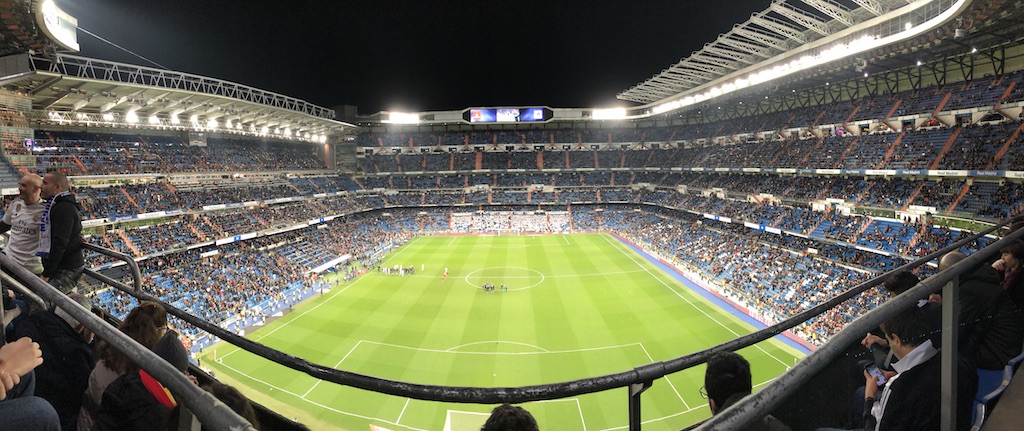Spain Trip over IAP
I'm taking a Spanish class in Madrid over IAP. I only have three hours of class a day, four days a week, so hopefully there will be a lot of time to explore the city, country, and/or continent.
Day 1
- Spanish tortillas are completely different from normal tortillas. They are like scrambled eggs, but in cake form.
- The gambling age, like the drinking age, is 18 in Spain.
- Tío means "uncle", but in colloquial Spanish it's like "man" or "dude".
- I feel like a lot more people smoke here than in America.
- When you order drinks at a bar, they give you a seemingly-random assortment of finger foods for free, like fried potatoes with orange sauce, Iberian ham sandwiches, and croquetas.
- The metro system is really nice.
Day 2
- To most Europeans, the idea of owning a gun is crazy.
- Spaniards pronounce wifi as wee-fee.
- In Spain, taco means "curse word", while tako actually means "taco".
Day 3
Real Madrid!

Day 10
Like many other European languages, nouns in Spanish have gender. Masculine nouns, like perro (dog) or hombre (man), are used with the article el, while feminine nouns, like chica (girl) or casa (house) are used with the article la. In English, both el and la translate to "the".
Because English does not have this gender distinction, it is often difficult for English-speaking students to remember to use the correct article. At least, it is quite difficult for me.
On the other hand, native speakers of Spanish have no trouble with it. For them, mistakes that foreigners make between el and la are very noticeable. The incorrect article just sounds wrong.
I find this quite interesting because it implies to me that people who are fluent in Spanish are constantly aware of the genders of the words they use and hear, whether consciously or subconsiously. I am curious if this affects the way they perceive gender - for example, if they are less comfortable with the idea of being gender neutral, because in their language there are no nouns with neutral gender.
More generally, ever since I watched Arrival I am curious about how language affects behavior.
Day 25
Today is my last day in Spain. As I am writing this, I am on a flight back to Boston. This blog post is quite barren at the moment, so hopefully in the upcoming days I will have time to add pictures and write more about my experiences and thoughts.
Overall, I really enjoyed my time in Spain. My favorite moments were dinners with my host family and weekend getaways with other classmates. I feel like my speaking and listening skills have improved as well. Now, I am much more confident in speaking with native Spaniards in Spanish, though oftentimes I still need them to repeat their sentences before I understand.
Going into IAP, I did not have very high expectations for how much my life would be changed by this study abroad experience, since three weeks is not really enough time to become immersed in a foreign country - it's more like an extended vacation. However, I do think that I have learned more than just the language from the trip.
For one, felt very similar to other cities I've visited in America. I had expected there to be some big differences, but it was actually very easy to adjust to life in Madrid. I suspect that life on a farm in America is more different from life in an American city than life in Madrid.
Also, most of the people in my class are not majoring in computer science, which is actually a pretty rare experience for me, because my living group, classes, and clubs are dominated by course 6's. I feel like when I'm on campus, I don't really think about the other majors very much, so this was a good reminder that there's much more to the world than computer science.